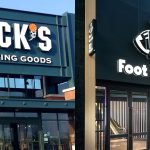Powered by heavy consumer traffic the week preceding and the day after Christmas, U.S. retailers are closing out their strongest holiday season in the last four years, according to a Chicago firm that follows shoppers' spending.
Sales for the week ending Dec. 27 increased by 24.6 percent compared with the same week in 2002, putting the 2003 holiday season on pace to finish more than 5 percent stronger than last year, ShopperTrak said Tuesday in its latest national retail sales estimate report. Last-minute shoppers fueled the sales surge, along with brisk day-after-Christmas business.
“Overall, the American consumer has not let retailers down so far this season,” said ShopperTrak consultant Michael Niemira in a statement. “This should be the strongest holiday retail season since 1999.”
ShopperTrak's initial postmortem validates forecasts last fall that U.S. retail holiday sales would increase as much as 5 percent to 7 percent this year compared with last year's 2.2 percent gain over the 2001 season.
Factoring in inflation, which is running about 2 percent, the retailers' across-the-board 3 percent gain “is a real plus,” said David Brennan, co-director of the Institute For Retailing Excellence at the University of St. Thomas.
“It's not a great year but it is a good year.”
Brennan noted the overall gain for U.S. retailers was the product of “tremendous ups and downs” in the sector with many specialty stores posting strong results but discounters appearing not to fare as well expected.
For example, Target Corp. on Monday reported that same-store sales “were above plan” for the week ended Dec. 27 at its namesake discount division and the rest of the company, which includes the Marshall Field's and Mervyn's chains. But the company said month-to-date results at Target stores were at the lower end of its forecast for 5 percent to 7 percent increase in December same-store sales compared to a year ago.
Along with stronger sales, many retailers are likely to end the season with better profits because they kept inventories tight and avoided deep discounting that marked the 2002 holiday season, said Kurt Barnard, president of Retailing Forecast, a New Jersey-based retail consulting firm. Major retailers are scheduled to report same-store sales results for December on Jan. 8.
Whether the momentum of the holiday season carries into next year is uncertain. A Conference Board report Tuesday showed that consumer confidence dropped slightly in December from the prior month.
“Retailing and consumers are a function of a four-letter word called J-O-B-S,” Barnard said. “Consumers are still worried about jobs.”
But some industry observers expect gift cards to boost traffic and retail sales for the final days of December and on into the first quarter of 2004. Final results from gift card activity will not be known for weeks since retailers do not count revenue from those pieces of plastic until shoppers redeem them.
Mitch Avery, owner of Dana's, a Twin Cities-based retailer of women's apparel, said gift card sales at his chain increased about 25 percent in December compared with the same period a year ago.
“People will bump up in quality to buy something nice,” when they use a gift card, said Avery. “They will look upon it as free money.”
—–













